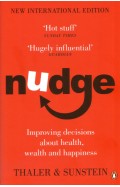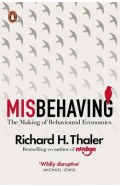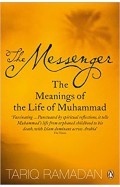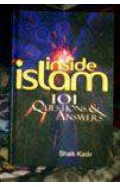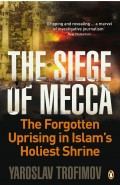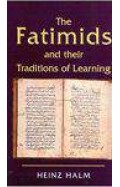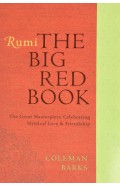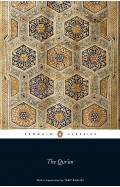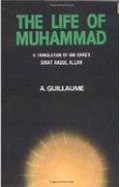In the Face of The Absolute
By: Frithjof Schuon
-
Rs 900.00
Due to constant currency fluctuation, prices are subject to change with or without notice.
If there is any body of writings from a living thinker that speak so directly to our contemporary spiritual condition, it is the writings of Frithjof Schuon. This newest translation, In the Face of the Absolute, is yet further confirmation that a voice is crying in our wilderness which we ignore at our peril. The basic theme of the book is that delicate yet central question of the truth of orthodox religions which appear to be incompatible or seem to contradict each other. To affirm the truth of each religion in its richness and diversity and at the same time to affirm with equal force that religion’s uniqueness in the divine economy obviously calls for a mind of great subtlety and sensitivity. Frithjof Schuon as a master of metaphysical reflection is one of the very few, in the modern age, whom one can trust to have such attributes.
In reading the essays contained in this collection, it will be noted that the author has in view, not traditional information pure and simple so much as intrinsic doctrinal explanations; that is to say, the expression of truths of which the traditional dialectics are the vestitures; hence it is not as a historian of ideas, but as a spokesman of the philosophia perennis that he expounds diverse formulations of the truth that is everywhere and always the same.
If there is any body of writings from a living thinker that speak so directly to our contemporary spiritual condition, it is the writings of Frithjof Schuon. This newest translation, In the Face of the Absolute, is yet further confirmation that a voice is crying in our wilderness which we ignore at our peril. The basic theme of the book is that delicate yet central question of the truth of orthodox religions which appear to be incompatible or seem to contradict each other. To affirm the truth of each religion in its richness and diversity and at the same time to affirm with equal force that religion’s uniqueness in the divine economy obviously calls for a mind of great subtlety and sensitivity. Frithjof Schuon as a master of metaphysical reflection is one of the very few, in the modern age, whom one can trust to have such attributes.
In reading the essays contained in this collection, it will be noted that the author has in view, not traditional information pure and simple so much as intrinsic doctrinal explanations; that is to say, the expression of truths of which the traditional dialectics are the vestitures; hence it is not as a historian of ideas, but as a spokesman of the philosophia perennis that he expounds diverse formulations of the truth that is everywhere and always the same.
Prayer Fashions Man: Frithjof Schuon on the Spiritual Life
By: Frithjof Schuon
Rs 950.00 Ex Tax :Rs 950.00
Zubin Mehta: A Musical Journey (An Authorized Biography)
By: VOID - Bakhtiar K. Dadabhoy
Rs 840.00 Rs 1,050.00 Ex Tax :Rs 840.00
Prayer Fashions Man: Frithjof Schuon on the Spiritual Life
By: Frithjof Schuon
Rs 950.00 Ex Tax :Rs 950.00
Nudge: Improving Decisions About Health, Wealth and Happiness
By: Richard H Thaler
Rs 1,795.00 Ex Tax :Rs 1,795.00
Misbehaving: The Making of Behavioural Economics
By: Richard H Thaler
Rs 2,795.00 Ex Tax :Rs 2,795.00
The Messenger: The Meanings of the Life of Muhammad
By: Tariq Ramadan
Rs 2,595.00 Ex Tax :Rs 2,595.00
Rumi :The Big Red Book The Great Masterpiece Celebrating Mystical Love And Friendship -
By: Coleman Barks
Rs 2,695.00 Ex Tax :Rs 2,695.00
Prayer Fashions Man: Frithjof Schuon on the Spiritual Life
By: Frithjof Schuon
Rs 950.00 Ex Tax :Rs 950.00
Nudge: Improving Decisions About Health, Wealth and Happiness
By: Richard H Thaler
Rs 1,795.00 Ex Tax :Rs 1,795.00
Misbehaving: The Making of Behavioural Economics
By: Richard H Thaler
Rs 2,795.00 Ex Tax :Rs 2,795.00
No recently viewed books available at the moment.
Zubin Mehta: A Musical Journey (An Authorized Biography)
By: VOID - Bakhtiar K. Dadabhoy
Rs 840.00 Rs 1,050.00 Ex Tax :Rs 840.00
Prayer Fashions Man: Frithjof Schuon on the Spiritual Life
By: Frithjof Schuon
Rs 950.00 Ex Tax :Rs 950.00
Prayer Fashions Man: Frithjof Schuon on the Spiritual Life
By: Frithjof Schuon
Rs 950.00 Ex Tax :Rs 950.00
Nudge: Improving Decisions About Health, Wealth and Happiness
By: Richard H Thaler
Rs 1,795.00 Ex Tax :Rs 1,795.00
Misbehaving: The Making of Behavioural Economics
By: Richard H Thaler
Rs 2,795.00 Ex Tax :Rs 2,795.00






















-120x187.jpg?q6)






